The Case Of The Purloined Gymkhana
A few days ago, Jack Baruth reminded us that an autocross event organized by Gymkhana GRID was cancelled, because a company by the name of DC Shoes claimed the rights to the word Gymkhana. If I would have been in Gymkhana GRID’s, well, shoes, I would have told DC Shoes to pound sand. What happened?
Costa Rica Unveils Most Burdensome Speed Camera Program Yet
Since September 8, motorists in Costa Rica have been racking up speed camera fines worth 308,295 colones (US $600) each. Sixteen speed cameras have been flashing around the city of San Jose at a rate of a thousand per day as part of the brand new program. Those fines — among the world’s highest — are not being mailed to vehicle owners, as is the case elsewhere. Instead, motorists are expected to check their plate number on a regular basis to see if they need to pay up.
On September 26, the first set of license plates was published in the form of a 120-page list in La Gaceta, the government’s official journal. The alleged violations are sorted by day, so all of the country’s vehicle owners must scan each day of the week looking for their vehicle. Those among the 15,429 plates that have been listed so far have until October 17 to come up with the $600 in cash.
State Governors Honor Red Light Camera Company Front Group
State highway officials are using their public offices to lend credibility to a public relations front group created by a foreign red light camera company. On September 27, the Governors Highway Safety Association (GHSA) held its annual meeting in Cincinnati, Ohio where it celebrated the “special achievement” of the Traffic Safety Coalition. This group, which is run by a public relations firm retained by the Australian photo enforcement firm Redflex Traffic Systems, accepted the Peter K. O’Rourke Special Achievement Award.
GHSA is a non-profit organization that “receives a substantial part of its support from a governmental unit or from the general public,” according to its tax returns. Its primary members are state transportation officials who use GHSA to lobby on behalf of programs that increase the issuance of traffic tickets.
Albuquerque, New Mexico Voters Reject Red Light Cameras
Voters in Albuquerque, New Mexico turned out in large numbers Tuesday to vote down the use of automated ticketing machines. Nearly 40,000 ballots were cast on an advisory question that City Councilor Dan Lewis placed before voters.
“Shall the Albuquerque City Council continue authorizing the ‘safe traffic operations program,’ commonly called the ‘red light camera program’?” the ballot asked.
With 94 percent of precincts reporting, 53 percent said “no” to the cameras. Unlike past referendum efforts, the city council created the ballot measure rather than citizen activists. As a result, there was no organized campaign urging people to vote down photo enforcement. On the other hand, Redflex Traffic Systems, the Australian company that runs the camera program in Albuquerque, put on an all-out effort to advertise in support of photo ticketing.
California: Appeals Court Approves Cell Phone Search During Traffic Stop
The California Court of Appeal on September 26 approved a police officer’s rifling through the cell phone belonging to someone who had just been pulled over for a traffic violation.
Reid Nottoli was pulled over on December 6, 2009 just before 2am as he was taking a female friend home. Santa Cruz County Deputy Sheriff Steven Ryan said Nottoli’s silver Acura TL had been speeding on Highway 1. After speaking with Nottoli on the side of the road, Ryan suspected the 25-year-old was under the influence of a stimulant drug. His license was also expired, so Ryan said he would impound the vehicle. Nottoli asked if his car could stay parked on the side of the road, which was not heavily traveled and out of the way. Ryan refused so that he could conduct an “inventory” search prior to the towing.
Texas City Works With Traffic Camera Company to Nullify Anti-Camera Vote
A red light camera company and officials in the city of Baytown, Texas are conspiring to nullify the results of an election. In November, 58 percent of voters approved a ballot measure prohibiting the use of red light cameras unless a police officer is present to witness any alleged offense. American Traffic Solutions (ATS) filed suit in February to overturn the result of this vote, and city officials on September 22 asked Harris County Judge Michael D. Miller to sign off on a settlement of this suit that was prepared by ATS.
Ohio Appeals Court Strikes Down GPS Vehicle Spying
Although the US Supreme Court is expected to settle the issue of GPS tracking of motorists soon, a three-judge panel of the Ohio Court of Appeals, Fifth District ruled 2-1 earlier this month against the warrantless use of the technology. The majority’s decision was likely designed to influence the deliberations of the higher courts. On November 8, the US Supreme Court will hear oral arguments in the GPS case US v. Jones. The Ohio Supreme Court is also considering Ohio v. Johnson in which the Twelfth District appellate court upheld warrantless spying.
The present case began on January 14, 2010, when Franklin County Sheriff’s Department Corporal Richard Minerd’s investigation of a burglary brought him to a white Honda Civic in an apartment complex. Minerd slapped a battery-powered GPS tracking unit under the bumper that allowed real-time tracking of the vehicle’s location, speed and direction of travel. Minerd did not seek a search warrant before acting.
Fun With Youtube: Woman Drives Car. Gets Beaten.
Washington: City Goes All Out to Defend Dangerous Camera Program
The city of Redmond, Washington decided last week that it had no intention of putting the issue of red light cameras and speed cameras to a vote of the people. The mayor refuses to transmit the completed petition signatures for an initiative on the topic to the county auditor, despite a state law that sets a three-day deadline for the city administration to do so. On Tuesday, Redmond police released data that show accidents have increased since at
Constitutional Rights Group Challenges Warrantless GPS Tracking
A powerful group of political figures issued a report last week condemning law enforcement’s unchecked use of high-tech surveillance system. The Constitution Project is troubled in particular by the ease with which a person’s movements can be tracked 24 hours a day. The conservative-leaning group insisted on the need to bring the law back in line with fundamental constitutional principles.
“Private sector technologies that enable constant monitoring of individuals are moving inexorably forward, and as they are developed, law enforcement agencies inevitably seek to use these new surveillance tools,” the report stated. “These include not only GPS devices and cell phones, but also laptop and notebook computers, location based services like OnStar, and technologies yet to be developed. Use of these surveillance devices presents serious challenges in terms of compliance with Fourth Amendment protections. While these technologies enhance the ability of law enforcement agents to accomplish their important work, it is also critical that we carry forward Fourth Amendment safeguards into the Digital Age.”
Florida Appeals Court Strikes Down Loud Car Music Law
A Florida law prohibiting the blasting of loud music from automobiles violates the first amendment, the Florida Court of Appeals, Fifth District, ruled on September 16. Shannon Montgomery had been driving in Marion County with his tunes “plainly audible” from a distance of twenty-five feet, contrary to the statute. He was pulled over and police eventually discovered he was carrying cocaine and marijuana.
Montgomery moved to suppress the evidence against him, arguing state law used to justify the traffic stop was overly broad and that “plainly audible” is an arbitrary standard. The appellate judges disagreed.
Missouri: Violations Still Down With Longer Yellows
Photo enforcement advocates downplay the benefit of increased yellow time in addressing the problem of red light running. New evidence from Arnold, Missouri shows that red light cameras continue to flash at a much lower rate since the state mandated longer signal timing at a number of photo-enforced intersections.
Arnold was the first jurisdiction in the Show Me State to allow a private company, American Traffic Solutions (ATS), to mail traffic tickets to residents. Since 2005, ATS has handed out more than 30,000 tickets worth over $3.1 million. In 2010, tickets were being pumped out at an average rate of 800 per month. With longer yellows, that figure averaged just 113 through July and August using the most up-to-date data available.
Texas: Red Light Camera Tickets a Man Running a Green Light
Cities that use automated ticketing machines at intersections routinely assert two things: The camera does not lie, and at least three humans review each citation before it is dropped in the mail. That did not happen in Port Lavaca, Texas. On September 12, Port Lavaca Police Sergeant Kelly Flood signed a ticket accusing Dale Price of running a red light and demanding he pay $75 by October 12, but the light was green.
“Based upon my review and inspection of the recorded images, I state that a violation of ordinance #S-1-08 did occur,” the ticket stated just above Flood’s signature. “I declare under penalty of perjury under the laws of the state of Texas the foregoing is true and correct.”
Hammer Time: Fascism on Four Wheels
“We just got cited Steve.” My wife had called me and sounded as confused as could be.
“What?”
“Something about Code 2009… I can’t read this… hold on…”
“Honey? What the hell does that mean?”
It turns out that I had been cited for a truly heinous and despicable act. Parking my own car on my own driveway. Some misguided jackass (we’ll just call her Jacqueline) had decided to inform me that my car, the Barnacle Bitch, was now a flagrant violator of the county’s brand new law.
Here is what it stated:
Massachusetts: Supreme Court Approves Charging Innocent Ticket Recipients
Motorists issued a traffic ticket in Massachusetts will have to pay money to the state whether or not they committed the alleged crime. According to a state supreme court ruling handed down yesterday, fees are to be imposed even on those found completely innocent. The high court saw no injustice in collecting $70 from Ralph C. Sullivan after he successfully fought a $100 ticket for failure to stay within a marked lane.
Louisiana: Legality of Municipal Red Light Camera Contract Questioned
Red light cameras and speed cameras may not be legally operating in Lafayette, Louisiana, according to current and former city officials. Councilman William G. Theriot was first to suggest that the city-parish President Joey Durel did not have the authority to unilaterally extend the contract with Australian automated ticketing vendor Redflex Traffic Systems when the agreement expired in June.
“I think a lot of people want to have a say so in what’s involved in it,” Theriot told KATC-TV. “Secondly if it is extended, we don’t know if the terms were negotiated or what was involved.”
How To Tell If A Red Light Camera Is A Safety Tool Or A Dangerous Form Of Taxation
[Editor’s note: The following was sent to us by Donald Sawicki of Copradar.com, a site where Mr Sawicki offers insight and literature on radar and red light camera safety issues to victims, defendants and legal professionals.]
The first step towards determining if a red light camera exists to make money is to answer the question: Does the traffic light force drivers that just happen to be in the wrong spot (worst case) when the light changes yellow to brake safely (worst spot at worst time)? If the answer is “safe braking for worst case” the camera probably exists for legitimate reasons of safety. If the yellow light forces unsafe or even dangerous worst case braking, the camera is strictly a source of money (a dangerous tax) that goes to cities or states and equipment suppliers (which typically split the booty). To catch (trap, trick, hook or crook) more redlight runners some municipalities shorten the yellow time forcing drivers (even NEAR worse case distance) to run the light. It gets worse: many jurisdictions use outdated driver reaction times (some established over half a century ago) when determining yellow duration, resulting in short yellow light times and unsafe worse case braking.
Missouri: Lawsuit Challenges Red Light Camera Legality, Astroturf
Lawyers for motorists in Missouri are looking to capitalize on recent discoveries regarding deceptive marketing campaigns orchestrated by red light camera companies. On Wednesday, The Simon Law Firm filed a class action lawsuit against American Traffic Solutions (ATS) and the city of Hazelwood seeking refunds for thousands of photo enforcement tickets issued without the sanction of state law.
“In bringing this class action, plaintiffs seek to expose what they and other Missouri citizens believe is an unscrupulous business venture between an out-of-state for-profit corporation and a municipal government seeking to fill city coffers,” attorneys Ryan A. Keane and John E. Campbell wrote.
Photo Radar Revolt Spreads to Canada
Jurisdictions throughout the United States have been dropping the use of red light cameras and speed cameras. On Tuesday, the revolt spread to Strathcona County, Canada where the county council voted 5-4 to replace automated ticketing machines with real, live police officers.
“As far as we can tell, other than British Columbia a few years ago, we’re the first jurisdiction in Canada to remove photo radar,” Councillor Brian Botterill told TheNewspaper in an interview.
New York: Federal Court Overturns Search on a Hunch
Police may not pull over a car simply because two passengers are riding in the back seat, according to a September 2 ruling of the US District Court for the Eastern District of New York. On December 30, 2009, a trio of New York Police Department officers had a hunch that a passing gold-colored Ford Crown Victoria with New Jersey license plates might secretly have been charging for rides.
The vehicle broke no traffic laws, but the officers became suspicious because in the dark at 1:30am, the officers only saw dark silhouettes of people in the back seat — and nobody in the front passenger seat. At trial, the officers were unable to provide a description of the vehicle, or identify any unusual activity from its occupants. None had ever seen this Crown Vic before. Officer Trent Narra testified that he had a “hunch” that the car was violating the New York City Administrative Code that fines individuals who operate cab service on the side without paying the $686,000 fee for a taxi medallion.
Want to Be Invisible From The Fuzz?
So let’s say you drive occasionally a bit over the legal limit, wouldn’t you like something like this?
“Unlike traditional camouflage systems which rely on paint or nets to hide vehicles, ADAPTIV can instantly blend a vehicle into its background.
With the ADAPTIV system installed, a unit has: The ability to blend into natural surroundings. The ability to mimic natural objects and other vehicles. A significantly reduced detection range.”
Look What Happens When A Shanghai Woman Gets Hitched
Washington: Traffic Camera Company Runs Press Relations for Lynnwood
The distinction between employees for a private photo enforcement firm and taxpayer-funded public servants blurred in the city of Lynnwood, Washington. Emails between city officials and American Traffic Solutions (ATS) suggest a cozy relationship developed where both sides were willing to perform the duties of the other in terms of marketing and public relations.
Lynnwood Police Sergeant Wayne “Kawika” Davis, for example, used official government resources and time to come up with a marketing plan to sell for the privately held firm at a conference held at the Tulalip Resort Casino in June.
Sweden To Muller: Hand Over The Money Or Go To Jail
As if Victor Muller doesn’t have enough problems. He has managed to upset Sweden’s state collection agency Kronofogden so much that they are threatening arrest. Muller claimed there is enough money to pay the employees, but if he does that, the state collection agency will get its hands on the money. The collection agency says that Muller has to hand over the cash or go to jail. This quote by Victor Muller sent Hans Ryberg, head of the enforcement agency in Uddevalla to the ceiling:
Arizona: Federal Judge Overrules Legislature on Transit Subsidies
Arizona must subsidize those who ride on buses, vans and light rail, regardless of the desire of state lawmakers or voters to do otherwise. US District Court Judge David G. Campbell on Friday overturned a state law enacted in March last year to curtail excessive spending by slashing such subsidies. The legislature canceled the Local Transportation Assistance Fund, which had doled out $127 million in taxpayer cash since 1998 to various mass transit programs using funds from the Powerball lottery.
Washington: Appeals Court Blocks Binding Vote on Photo Ticketing
The Washington Court of Appeals yesterday delivered a big win to American Traffic Solutions (ATS), the photo enforcement firm that has fought hard to prevent the public from voting on red light cameras and speed cameras. A three-judge panel overturned last month’s decision by Whatcom County Superior Court Judge Ira Uhrig that had found the ATS suit was specifically crafted to block public access to the ballot.
The appellate judges sided with ATS, which argued Bellingham residents have no right to decide whether or not automated ticketing machines can be used in their city.
Federal Court: Traffic Stop Does Not Justify Home Entry
A police officer has no right to pursue a minor traffic stop into a home, according to a ruling handed down Wednesday by the US Court of Appeals for the Tenth Circuit. A three-judge panel considered what happened after police in Sulphur, Oklahoma saw a suspect allegedly driving with faulty taillights on July 23, 2007.
Ask The Best And Brightest: Is The Supercar's Cool Wearing Off?
The arrest of 13 young supercar drivers near Vancouver, British Columbia is not necessarily the sort of piece I’d jump all over right away, but it did inspire quite a number of emails from readers tipping us to the story. I’m always intrigued by stories that inspire a lot of tips, but after reading the Vancouver Sun follow-up, I was even more disappointed with the story. To wit:
The drivers face charges of driving without due consideration for others, which comes with a $196 ticket and six driver penalty points, which will trigger a $300 penalty point premium.
Gaumont said there is a lot of disappointment that the drivers face only $196 fines, but there is not enough evidence to charge them with the more serious offence of dangerous driving.
“We don’t have police officers who observed the offence, and we don’t have lasers and radars that have the speeds,” Gaumont said. “We have to really depend on third-party individuals who had called in.”
If I’ve got this right, we’re supposed to be outraged by young people in fast cars, and society’s inability to stop them from wreaking their “speeds upwards of 200 km/h” terror. For me, though, the overriding reaction to this story is “how uncool doess this make the supercars look?”
Ask The Best And Brightest: Which Automaker May Be Fudging Their EPA Numbers?
The Environmental Protection Agency’s fuel economy testing system is notoriously weak, relying on self-reporting for the vast majority of vehicles, and exhibiting vulnerabilities to “gaming.” But rather than attacking each others’ EPA numbers, automakers seem to have agreed that it’s best if everyone does their best to juice their own numbers and allows the imperfect system to limp on. But over at Automotive News [sub], we’re hearing what could be the first shots fired in a new war over EPA ratings, as Product Editor Rick Kranz reveals that an OEM is starting to complain about another OEM’s fuel economy ratings. He writes:
An executive of one U.S. automaker suggests there might be some sleight of hand going on and that the EPA is not catching the offenders.
The issue: There’s a noticeable difference between the mpg number posted on some cars’ window sticker and an analysis of the data submitted by automakers to the EPA.
Ruh-roh!
Initiatives to End Photo Enforcement Scheduled for Upcoming Elections
Voters in at least seven cities will soon have a chance to decide whether to prohibit the use of red light cameras and speed cameras. Initiatives are being certified for the ballot in five states across the country, despite an all-out effort by photo ticketing firms to block any public role in the matter. Early voting is already underway in Albuquerque, New Mexico for the October 4 municipal election.
“Shall the Albuquerque city council continue authorizing the ‘Safe Traffic Operations Program,’ commonly called the ‘red light camera program’?” the city ballot asks.
North Dakota Supreme Court: Drivers Not Searched Under Auto Exception
Just because police can search an automobile does not mean they can search its driver, according to an August 15 ruling by the North Dakota Supreme Court.
Cop Rapes Civilian In Cruiser
In Albuquerque, a police officer is caught with his pants not quite down, but nonetheless having sex on the hood of a car. From the pictures released, it looked consensual. This is not what can be said of the conduct of a Philadelphia police officer. According to the Philadelphia Inquirer, Keith Corley II, a 4 year member of the Philadelphia police department, was charged with raping a woman in the back of his squad car while on duty in the 18th District in West Philadelphia.
California: Traffic Camera Firm Shakes Down City
As municipalities around the country increasingly have second thoughts about continuing red light camera programs, the private companies in charge of the photo ticketing are turning up the heat. Redflex Traffic Systems announced to its Australian shareholders last week that it continues to adjust contract language, boosting the penalties for cities that turn their back on photo ticketing. Just such language has hit in San Bernardino, California where rival photo ticketing firm American Traffic Solutions (ATS) is threatening to impose an extra $1,896,202 fee to punish the city council for attempting to get out of the contract in March. Officials had already approved cutting a check for $175,000 to the company as compensation.
Courts Uphold Right To Video Police, New Mexico Officer Makes Us Wonder If We Should
Boston.com’s On Liberty blog reports that the 1st Circuit Court of Appeals upheld the right of citizens to video police officers, ruling in part that
changes in technology and society have made the lines between private citizen and journalist exceedingly difficult to draw. The proliferation of electronic devices with video-recording capability means that many of our images of current events come from bystanders with a ready cell phone or digital camera rather than a traditional film crew, and news stories are now just as likely to be broken by a blogger at her computer as a reporter at a major newspaper. Such developments make clear why the news-gathering protections of the First Amendment cannot turn on professional credentials or status.
So great was this victory for First Amendment rights and the New Media, that an Albuquerque police officer celebrated by getting caught in flagrante delicto while in uniform. You know, in case there was any question as to why the courts really ruled this way. And if this whole story smacks of Jalopnik-style only-barely-related-to-cars desperation, we’ve got a “Stump the Best And Brightest” challenge to keep things car-centric: what model of vehicle is the officer “laying down the law” on?
California: Court Blasts Beatdown Over Seat Belt Infraction
A federal appellate court ruled Friday that the pepper spraying and beating of a black motorist who did not wear his seat belt constituted excessive force. Mark Anthony Young, 46, was driving to the gym in February 2007 when Los Angeles County, California Sheriff’s Deputy Richard Wells stopped him so he could issue a ticket for failing to buckle up. Wells’ problems began when he was unable to produce his vehicle registration.
While Wells was writing up the ticket, Young got out of his truck and walked over to hand the deputy the vehicle’s paperwork. Wells ordered Young back into his truck, but Young did not feel like doing so. He sat on the curb, eating broccoli. In his legal filing, Wells claimed the broccoli was dangerous and that he “believed that [Young] was about to throw the broccoli at [him] in order to cause a distraction before assaulting him.”
Another California City Joins Red Light Camera Revolt
A fourth city in Orange County, California is poised to outlaw the use of red light cameras. Earlier this month the Laguna Niguel city council voted 4-1 on first reading of a measure that would prohibit the use of automated ticketing machines in the future — the city has never allowed camera vendors to operate on its streets.
Linda Lindholm and Robert Ming introduced the measure citing the “mixed reviews” the cameras have received with studies showing red light cameras increase accidents ( view studies).
Houston, Texas Pulls Plug on Red Light Camera Program
The long battle over the red light camera program in Houston, Texas ended Wednesday. The city council voted 14-1 to repeal the ordinance that granted American Traffic Solutions (ATS) the right to issue automated tickets at fifty intersections throughout the country’s fourth largest city.
“This is a total victory for the voters of Houston,” Citizens Against Red Light Cameras spokesman Philip Owens told TheNewspaper. “The only shame is it took too long to get where we are. Today was more of an exercise in political theater but a win is a win.”
California Legislature Considers Limiting DUI Roadblock Use
Confiscating automobiles has become a significant source of revenue for cash-strapped California cities. Last Tuesday, the state legislature gave preliminary approval to legislation to impose limits on the practice.
Under current law, municipalities run sobriety checkpoints funded almost entirely by $30 million in federal grant money. The drunk-driving (DUI) roadblocks catch comparatively few drunk drivers, so officers often focus on issuing as many tickets as possible for minor violations while cars are stopped. Assembly Bill 353 separates vehicle inspection checkpoints from DUI roadblocks and prohibits impounding of vehicles unless the alleged offense meets certain criteria.
California to Hike Cell Phone Driving Fine
The California legislature last week sent legislation to Governor Jerry Brown (D) designed to boost the number of citations issued for for driving while talking with a cell phone in hand. The measure also increases the maximum possible fine to $528.
Tampa, Florida Incentive to Increase Automobile Insurance Rates
The city council in Tampa, Florida this month began deciding how it would spend revenue from the red light camera program expected to go online next month. Officials calculated that the automated ticketing machines would bring in an extra $2 million a year, an important amount for a city facing a $34.5 million budget deficit.
Police Chief Jane Castor had proposed to the city in March that it sign a contract with American Traffic Solutions. Castor and members of her department personally profit from any ticketing system linked to an increase in automobile insurance rates. This is so because the state imposes a tax on car insurance that is deposited as a “state contribution” in each municipality’s police pension fund. Based on city figures, the 0.85 percent tax pumped an extra $8,158,217 into Tampa police pensions from a total of $1 billion in added insurance costs paid by Tampa drivers between 1999, when the current system was imposed, and 2009.
GM: Impala Suspension Problems Are "Old GM's" Liability
The Detroit News’s David Shepardson reports that GM has requested the dismissal of a lawsuit alleging rear-suspension problems on 2007-8 model-year Impalas, on the grounds that
“New GM did not assume liability for old GM’s design choices, conduct or alleged breaches of liability under the warranty, and its terms expressly preclude money damages,” the response says.
The suit “is trying to saddle new GM with the alleged liability and conduct of old GM.”
Washington Judge Issues $10,000 Ticket Against Red Light Camera Firm
A Whatcom County, Washington Superior Court Judge yesterday threw the book at a photo enforcement firm for interfering with the right of the public to petition their government. Judge Ira Uhrig handed down from the bench a stinging rebuke to American Traffic Solutions (ATS). Uhrig found the firm’s lawsuit to block an anti-traffic camera initiative from reaching the ballot in Bellingham violated state law, so he slapped the Arizona-based firm with a $10,000 fine and ordered it to pay the legal fees of the initiative’s sponsors.
“This was the greatest repudiation of ATS by a judge I could ever imagine happening,” initiative co-sponsor Tim Eyman told TheNewspaper. “It was huge. I’ve never seen anything like it.”
Law Review Blasts Toll Road, Parking Meter Privatization
A University of Chicago Law School professor is challenging the prevailing wisdom regarding the sorts of transportation privatization deals that have grown increasingly popular. The Minnesota Law Review last month published a critique by Julie A. Roin that argued such deals have more in common with the medieval practice of tax farming than true privatization. She cited as a primary example Chicago, Illinois Mayor Richard M. Daley’s 2008, lease of the city’s parking meters to Morgan Stanley for 75 years in return for an up-front payment of $1.2 billion.
"The agreement exchanges future public revenues for present public funds, just like debt," Roin explained. "And just like many debt arrangements, the parking meter deal will leave future ratepayers decidedly worse off… Future ratepayers will be doubly disfavored relative to current residents: they will have to pay higher taxes to maintain the same level of services, even as their disposable income is reduced by the extra parking fees mandated by the agreement."
Houston, Texas Mayor Flip Flops on Red Light Cameras
Another twist in the red light camera saga in Houston, Texas could leave photo enforcement vendor American Traffic Solutions (ATS) out in the cold. Later today US District Court Judge Lynn N. Hughes is expected to decide whether to grant ATS a restraining order that would prevent America’s fourth largest city from deactivating its automated ticketing machines. Voters in November enacted a charter amendment prohibiting camera use, but Hughes personally decided to overturn their ballot choice saying the voters just “want to run red lights.”
That ruling has not gone over well with the public, and Mayor Annise Parker has been feeling the heat from members of the public and the city council. Late last week Parker reversed course and scheduled a vote this Wednesday that will allow the council decide how to proceed on the issue. The sudden shift left ATS furious.
Texas Appeals Court: Driver Has No Right to Dashcam Video
Drivers have no recourse if police say the tape from a dashboard-mounted video camera is not available, according to a ruling Wednesday from the Texas Court of Appeals. Mark Lee Martin wanted to defend himself against drug possession charges filed in the wake of an August 29, 2008 traffic stop, but he was told no video was available.
Travis County Sheriff’s Deputy Darren Jennings claimed that he pulled over Martin that evening because he failed to signal a left-hand turn. Within less than two weeks after the incident, Martin’s attorney formally requested that the department preserve video evidence from the stop. Subpoenas were issued to ensure “all videos and dispatch calls” would be saved. At trial, Jennings was asked why the camera evidence had not been kept.
“Since I didn’t put it in my report it wasn’t preserved because I didn’t believe it had any type of evidential value,” Jennings told the court.
Tennessee Attorney General Backs Right Turn Camera Ticket Ban
The Tennessee General Assembly is free to impose limitations on the use of automated ticketing machines, according to an opinion issued Monday by Attorney General Robert E. Cooper Jr. Cities and photo enforcement companies had complained that the legislature had “impaired contracts” when it enacted a law in July prohibiting the issuance of photo tickets to drivers making slow right turns on red. Right-turn citations have become the primary moneymaker for red light camera systems nationwide.
More Ohio Cities to Hold Anti-Traffic Camera Votes
In the past five years, five Ohio cities have voted to ban photo enforcement, and two more might be added to the list. The Cuyahoga County Board Of Elections is now counting signatures from residents in South Euclid and East Cleveland who are determined to prohibit automated ticketing in November. On August 3, organizers in East Cleveland handed in 1624 signatures, well more than the 358 needed to qualify in the city of 18,000. South Euclid activists turned in 1076 signatures on July 25.
Australia: Speed Camera Deployments Examined
The auditor general for New South Wales, Australia last month issued a report on speed camera use in the state. The Liberal Party government had ordered the review after it took power at the end of March. Following the results, thirty-eight camera locations have been taken offline.
As with the like-minded Conservative Party in the UK, NSW Liberals did not set out not to end the use of photo enforcement which generated 371,015 tickets worth $58,117,038 last year. Instead, the party’s leaders are taking steps reduce the number of cameras and reverse the ruling Labor Party policies that kept safety, operational and revenue data for individual cameras a closely guarded secret. No effort had been made to evaluate the program since 2005.
Washington: Traffic Camera Executive Orchestrated Anti-Voter Suit
Photo enforcement vendor American Traffic Solutions (ATS) could find itself in trouble for lying before the Washington Supreme Court about its involvement in attempts to overturn a ballot initiative in Mukilteo last year. The Everett Herald newspaper obtained emails from former ATS Vice President Bill Kroske that show he attempted to collude with the city’s mayor to deny the public an opportunity to vote on banning red light cameras and speed cameras.
Desperate Photo Enforcement Firms Sue Cities
Companies that operate red light cameras and speed cameras are facing increasing opposition across the country. In response, the firms have adopted a strategy of suing cities that have second thoughts about continuing to use cameras in their community. They have also been going after their own customers to collect as much revenue as possible.
On December 1, Redflex filed suit against Tempe, Arizona in Maricopa county Superior Court claiming the city owed $1.3 million in per-ticket fees for each driver mailed a photo ticket who decided to go to traffic school. The city claims it only collected $1.8 million in revenue from the program, mostly because last year’s payment rate was just 31 percent. Drivers realize in increasing numbers that tickets in the state can be ignored unless they are properly served.
Washington: Court Denies Attempt to Block Public Vote on Traffic Cameras
Voters in Bellingham, Washington are likely to have the final say in whether or not to continue using red light cameras and speed cameras. A Whatcom County Superior Court judge yesterday threw out the attempt by photo enforcement vendor American Traffic Solutions (ATS) to immediately block the measure from being considered. The court believes ATS has an uphill battle to prove its case.
“ATS has not demonstrated that it will suffer immediate and irreparable injury if the temporary restraining order is not granted,” Judge Steven Mura ruled. “ATS’s motion for a temporary restraining order is denied.”
Houston Residents Unload on City Council Over Red Light Decision
Hundreds of Houston, Texas residents swarmed the city council chambers yesterday to complain about the reactivation of red light cameras. Voters in November enacted a charter amendment banning the use of automated ticketing machines, but a federal judge worked with the city attorney and vendor American Traffic Solutions (ATS) to nullify the election so that the cameras could come back.
“Ever since I was a little kid I was told this was the greatest nation in the world and it was great because I had a vote and my vote counted,” resident Terry Dry said. “It appears my vote does not. I’m asking y’all as our elected leaders, we voted. Turn them off. And if you’re not going to do that, I would like to know where each council member stands on the issue so that we can get some people in here who will do the people’s will in the next election.”
Chicago School Crossing Guards To Write Parking Tickets
[Ed: This piece originally appeared at The Expired Meter]
Every morning, children who walk to school are familiar with the smiling, friendly faces and the outstretched arms of their local crossing guard who ensures they get safely to class each day during the school year.
But what do crossing guards do when school’s out for summer?
At least some of the friendly faced school crossing guards are spending their summer vacation writing parking tickets to Chicago drivers on behalf of the city.
It began as a pilot program last summer, and as a way to give crossing guards a way to continue to bring in a paycheck when school was finished in June, according to Crossing Guard Coordinator John Maciezjewski, a retired police officer. This year it has been rolled out city wide to give summer employment opportunities to the over 1100 crossing guards working for the city.
Federal Court OKs Personal Information on Parking Tickets
The Village of Palatine, Illinois prints the personal information of vehicle owners — including their address, driver’s license number, date-of-birth and weight — on parking tickets left under the windshield wipers of their automobiles. In a ruling handed down last month, the Seventh US Circuit Court of Appeals found no problem with this procedure.
Motorist Jason Senne had filed suit against what he saw as an outrageous violation of privacy after he received a $20 parking ticket in August 2010. The information printed on the citation, and left open to anyone walking past his vehicle, could be used by an identity thief. Senne argued this was a violation of the federal Driver’s Privacy Protection Act which prohibits disclosure or otherwise making available the information found in motor vehicle records.
The Truck That Invades Your Privacy, Photographs Your Genitalia, Records The Photograph For Posterity, And May Cause You To Die Of Cancer
If you want a picture of the future, imagine a boot stamping on a human face — forever. —O’Brien, in “1984”.
O’Brien was wrong. The picture of the future is a picture of you: completely naked, with your privacy invaded, taken as you walk along the street, sit in your own vehicle, or pursue your own private business. You will be recorded forever, your movements will be marked, your possessions will be noted, you will become completely subservient to a government you may not even remember electing. Eventually, you may die of cancer, moaning out a final cry of drug-addled defiance as you are culled — in a quite humane fashion, of course — to prevent excessive healthcare costs.
The company helping to bring you the above future is called, without irony, “American Science and Engineering, Inc.”
Saab Soap, The Endgame: Antonov Wants War!
In the Saab soap, it looks like Vladimir Antonov does no longer want to be invited back. Swedish Aftonbladet reports that “Vladimir Antonov is pissed” (at least that’s Google’s translation for “Vladimir Antonov är förbannad”) and is looking into legal action against Sweden’s Prime Minister Fredrik Reinfeldt, Finance Minister Anders Bork and Maud Olofsson, Minister for Enterprise and Energy.
Washington: Anti-Camera Referendum Sponsors Fight Back
Backers of ballot initiatives that would ban photo enforcement in a number of cities in Washington state are fighting back against municipal efforts to silence their vote. Traffic camera companies have become increasingly bold in their efforts to prevent the public from deciding whether red light cameras and speed cameras should be used in any given community.
American Traffic Solutions (ATS) scored its first victory in May when it found an activist judge in Chelan County willing to block residents from even filing a petition to their government regarding the use of traffic cameras in the community ( read decision). Just days after the decision came down, the state supreme court discussed traffic camera initiatives, and several justices pointed out that blocking signature collection efforts would be a violation of the state constitution. Nonetheless, to bypass the legal blockade, initiative co-sponsor Matt Erickson is circulating a second petition that schedules an advisory vote on taking down the cameras at every election until the devices are finally removed.
Los Angeles, California Red Light Camera Program Officially Canceled
Red light cameras are coming down in Los Angeles, California after midnight on Sunday. The city council yesterday voted unanimously to drop the program primarily over the county court system’s refusal to enforce unpaid tickets, depriving the city of millions in expected revenue. The council instructed the city attorney to work with American Traffic Solutions (ATS) to decide the cheapest way to remove the systems and process all tickets issued through the end of the month.
“We need to be clear about what we are doing here today with this particular vote,” Councilman Dennis P. Zine said. “I don’t want to give the wrong perception to the public that this program may continue in the future. As I noted, photo red light will be gone in four days. Cameras need to come down immediately to not create a smokescreen to affect the hope that we may turn them back on.”
Los Angeles Red Light Cameras Die On Sunday; If You Have A Ticket, You Might Want To Ignore It
The LA Times reports:
The City Council voted unanimously Wednesday to halt Los Angeles’ controversial red-light camera program, which has ticketed more than 180,000 motorists since beginning in 2004. The program will officially end July 31.
The action followed a similar vote last month by the city Police Commission, which sought to drop the 32-camera program in part because of the difficulty in collecting fines.
But wait, the news gets better! Earlier today, the LAT helped bust the photo enforcement program wide open, reporting:
City officials this week spotlighted a surprising revelation involving red-light camera tickets: Authorities cannot force violators who simply don’t respond to pay them. For a variety of reasons, including the way the law was written, Los Angeles officials say the fines for ticketed motorists are essentially “voluntary” and there are virtually no tangible consequences for those who refuse to pay.
It’s a little more complicated than that, but those are the broad strokes.
Richard Retting Cashes in on Lifetime of Traffic Camera Advocacy
The one man most responsible for the spread of red light cameras in the United States is now enjoying the fruit of his labor. Richard A. Retting was New York City’s deputy assistant commissioner for traffic safety programs as the Big Apple considered becoming the first in the US to operate intersection cameras. Planning for the program began in 1983 and continued through 1991 when then-Mayor David Dinkins activated the system. For this achievement, Retting was dubbed the father of the red light camera in America, and today he is earning money directly from the systems that have followed New York’s lead.



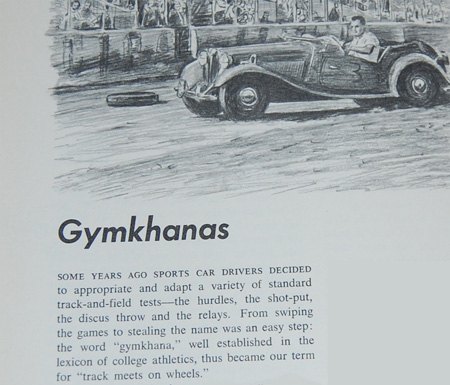


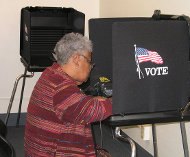



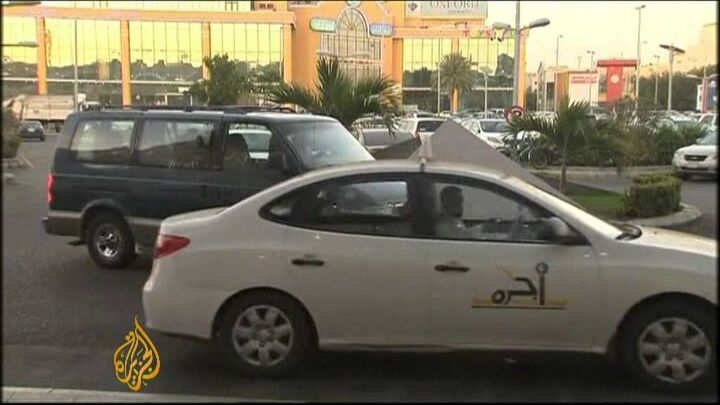







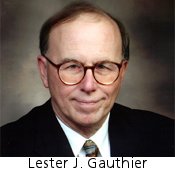


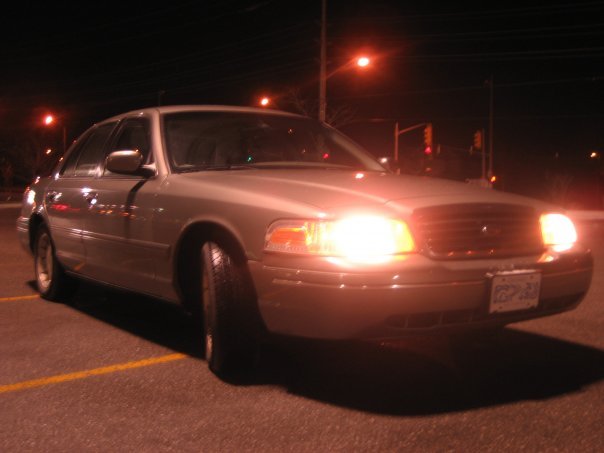

















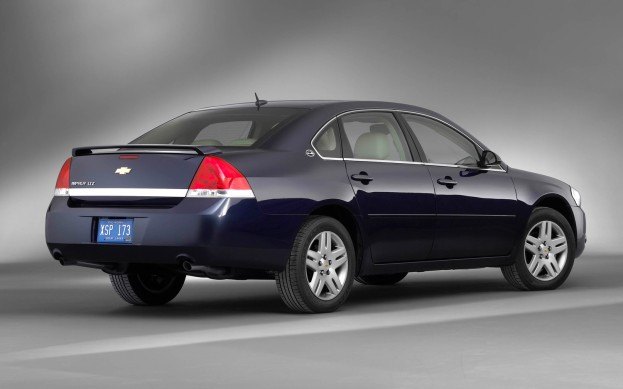










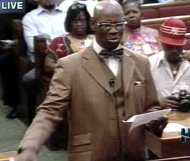



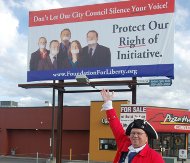
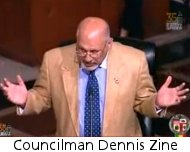














Recent Comments